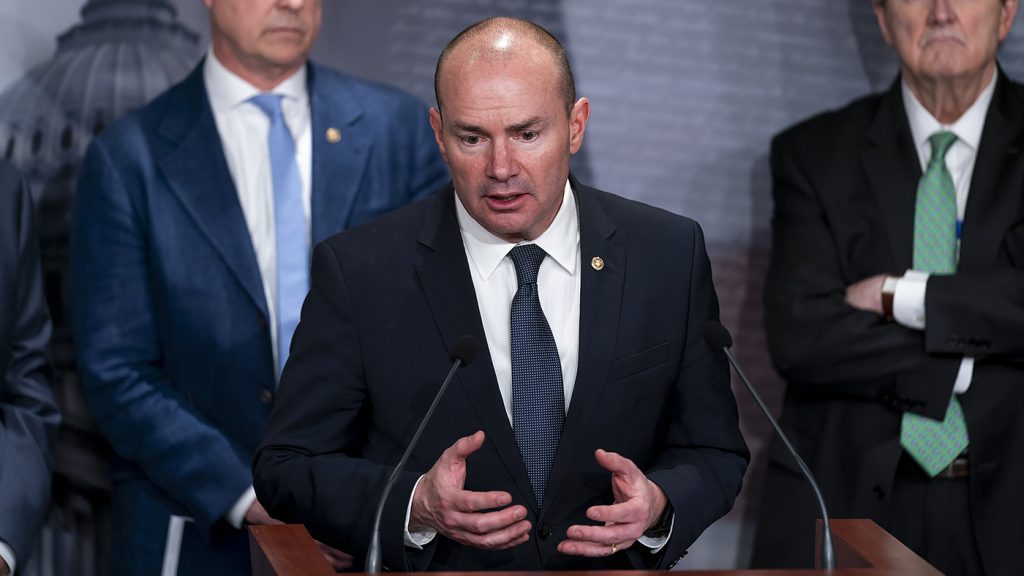Senate conservatives, led by Sen. Mike Lee (R-Utah), advised House Republicans to oppose a procedural tactic by Speaker Mike Johnson (R-La.) to divide an emergency foreign aid package into four parts to improve its chances of approval, which they called a “sham.”
Senate conservatives cautioned that this would lead to the House approving an emergency foreign aid package similar to the $95 billion aid bill passed by the Senate in February, which most Republican senators opposed. The package includes funding for Ukraine, Israel, and Taiwan.
In a letter to House GOP colleagues on Thursday, the senators stated that voting for the rule to set up this process would effectively support the Senate-passed supplemental, rejected by a majority of Senate Republican conference, and signal approval for overriding the priorities of rank-and-file members through this deceptive process.
Sens. Mike Braun (R-Ind.), Cynthia Lummis (R-Wyo.), Rand Paul (R-Ky.), and Tommy Tuberville (R-Ala.) joined Lee in signing the letter.
On Friday morning, 55 House Republicans opposed the rule to set up the debate on the four-part emergency foreign aid package.
However, the rule passed because House Democrats intervened to prevent Johnson from losing the crucial vote. It passed with a large bipartisan majority, 316 to 94.
Lee and other Senate conservatives cautioned that the rule would enable the House to separately pass the four elements of its foreign aid package and then combine them into a single package to send to the Senate.
“The rule permits representatives to individually vote on bills for Ukraine, Taiwan, and Israel, which are then combined into one legislative vehicle without requiring a vote on the final combined package,” the senators wrote. “This tactic was favored by Speaker Pelosi and was used at least three times to advance the Democrats’ most controversial policies.”
They noted that Johnson’s approach would not necessitate border security provisions, demanded by many Republicans, to accompany Ukraine funding.
They stated that the diluted border security provisions would be sent to the Senate separately and would not be considered on the floor.









